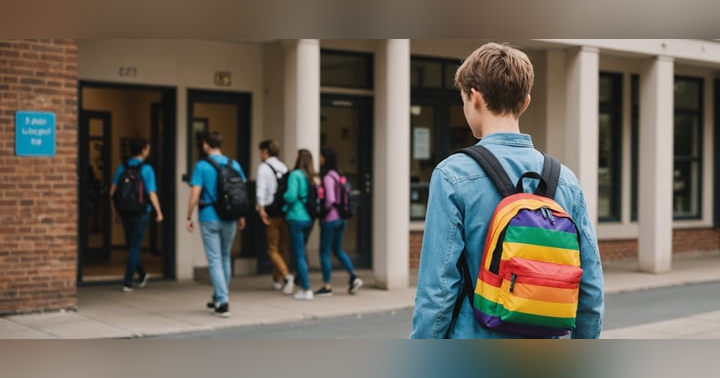Understanding and Addressing Emotional Unavailability in Gay Men: Causes, Signs, and Solutions

Not Sure If I'm Emotionally Available, But I'm Definitely Emotional
We often hear about emotional unavailability, especially when relationships falter. It often seems like a buzzword to explain a partner's bad behavior. But what does it really mean?
Defining Emotional Unavailability
A 2021 PsychCentral article describes emotional unavailability as a discomfort with feeling emotions, sharing them, or being responsive to others' feelings. Meanwhile, Urban Dictionary simplifies this as when an emotionally unavailable person struggles to make time for loved ones and creates barriers to intimacy, making their partners feel unloved.
The causes of emotional unavailability vary but commonly include insecure attachment styles, personality disorders, and childhood trauma. Let's dive deeper into these factors.
Attachment Styles and Their Impact
Attachment styles play a significant role in emotional availability. In case you’re not familiar with attachment styles, here's a quick refresher:
- Secure attachment: Low anxiety, low avoidance.
- Anxious preoccupied: High anxiety, low avoidance.
- Dismissive avoidant: Low anxiety, high avoidance.
- Fearful avoidant: High anxiety, high avoidance.
Children who are denied affection and support often develop avoidant attachment styles, leading to independence and difficulty in forming intimate relationships as adults. Childhood attachment wounds, such as abandonment or neglect, also contribute to emotional unavailability in adulthood as a self-protective measure.
Recognizing Emotional Unavailability in Relationships
Common traits of an emotionally unavailable partner include avoiding commitment, lacking empathy, and getting defensive easily. Specific behaviors might include inconsistent communication, reluctance to make plans, and difficulty discussing or empathizing with feelings.
Dating someone emotionally unavailable can lead to an imbalanced relationship where one partner does all the emotional work, which often results in feelings of insecurity and misunderstanding.
Emotional Unavailability in Gay Men
For gay men, childhood trauma often plays a significant role in emotional unavailability. Many of us had to hide our true selves growing up, adhering to a heteronormative mold that felt unnatural. This repression, coupled with potential rejection from family and friends upon coming out, can lead to an avoidant personality as a form of self-protection.
Our relationships with our parents are our first lessons in love. The Gay Therapy Center suggests that if our parents were neglectful or disapproving, we might unconsciously seek similar dynamics in relationships because they feel familiar. Even if they weren't rejecting, it's likely they couldn't consistently offer the emotional support we needed as gay children.
Additionally, a blog post by Phoenix Men's Counseling claims that our drive to seek emotionally unavailable partners is often influenced by our first or most significant romantic relationship, shaping the expectations we carry into future relationships.
Furthermore, we may also discover that we are emotionally withdrawn if we tend to keep options open, find relationships draining, withhold personal feelings, be attracted to unavailable people, and equate drama with intimacy.
Signs of Emotional Unavailability in Gay Men
From the perspective of gay men, Zachary Zane published an article in Pride in 2016 titled 14 Signs You're an Emotionally Unavailable Gay Man, which provides a few core themes of emotional unavailability:
Unrealistic Expectations and Nitpicking:
- Constantly on Grindr but not genuinely looking for a relationship.
- Nitpicking minor flaws in potential partners.
- Searching for an idealized, non-existent Prince Charming.
Avoidance and Defense Mechanisms:
- Engaging in casual sex as a way to avoid emotional intimacy.
- Playing hard to get, which prevents genuine connections.
- Never allowing oneself to be vulnerable.
Blame and Responsibility Issues:
- Blaming external factors like the city or small dating pool for dating struggles.
- Believing nothing is ever your fault or, conversely, thinking every ruined relationship is your fault.
Emotional and Psychological Barriers:
- Dealing with internalized homophobia.
- Being stuck on a past love.
- Not giving men a fair chance.
- Craving chaos and conflating it with excitement.
- Being too focused or stressed about other life factors.
Becoming Emotionally Available
Being emotionally available not only enhances personal well-being but also strengthens the broader LGBTQ+ community by promoting healthier relationships. According to Choosing Therapy, gay men seeking to build fulfilling relationships can work to become more vulnerable by:
- Being mindful of emotional experiences.
- Identifying the causes of unavailability.
- Practicing opening up gradually.
- Discussing emotions with trusted people.
- Taking relationships slowly.
- Working with an LGBTQ+ affirming therapist.
Avoid Emotionally Unavailable Partners
It’s crucial to detach from unhealthy relationships and seek partners who are emotionally available. If we’re dating someone emotionally unavailable, we should express our concerns directly by discussing their behaviors and expressing how they affect us.
We might ask if there’s anything they need from us or how we can support them in becoming more emotionally available. However, we must also be realistic and evaluate whether this person truly meets our needs. Sometimes, it’s best to end the relationship and focus on our own emotional growth to find an emotionally available partner.
While the excitement of a text or a date might feel thrilling early on, those intense feelings can mask deeper issues. Consistency in a relationship often brings a more stable and fulfilling kind of excitement, where the butterflies of anxiety are replaced by the comfort of a reliable connection.
It’s essential to assert our needs in relationships. By prioritizing ourselves and setting healthy boundaries, we can foster healthier relationships and attract positive people into our lives.
And remember. Every day is all we have, so you've got to make your own happiness.
For more information on this topic, listen to Episode 42. Are You Emotionally Unavailable?
Tune into your favorite podcast player every Tuesday for new episodes of A Jaded Gay.


















